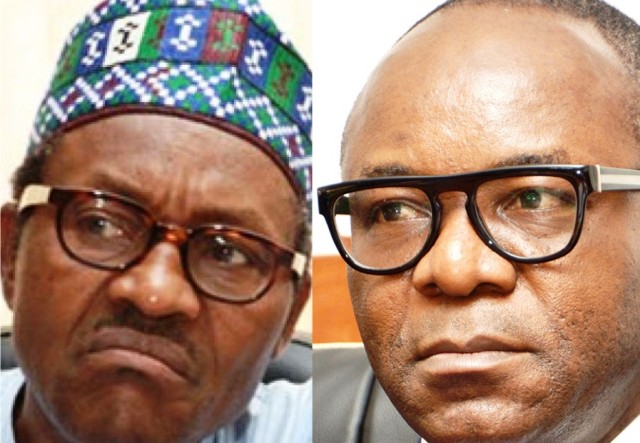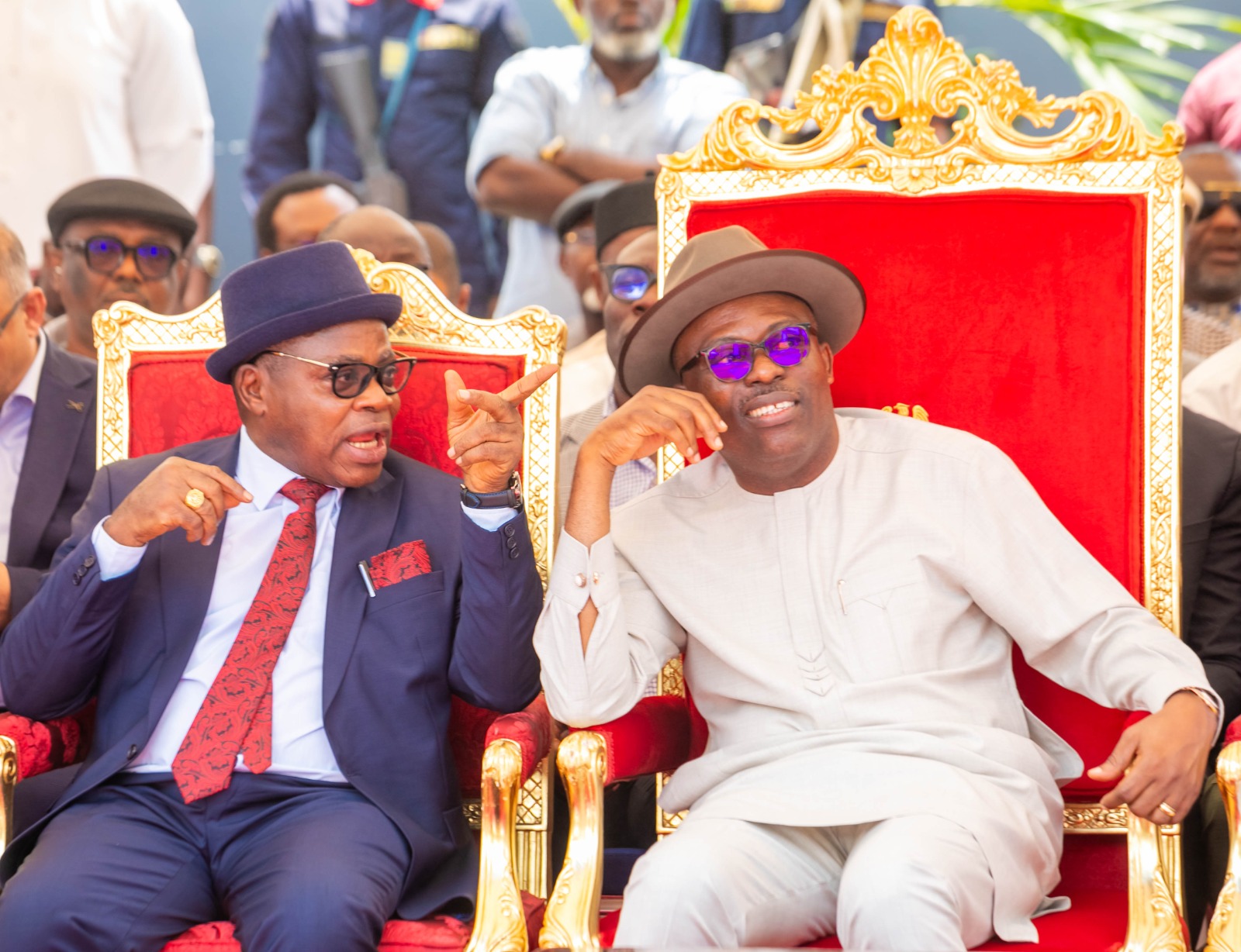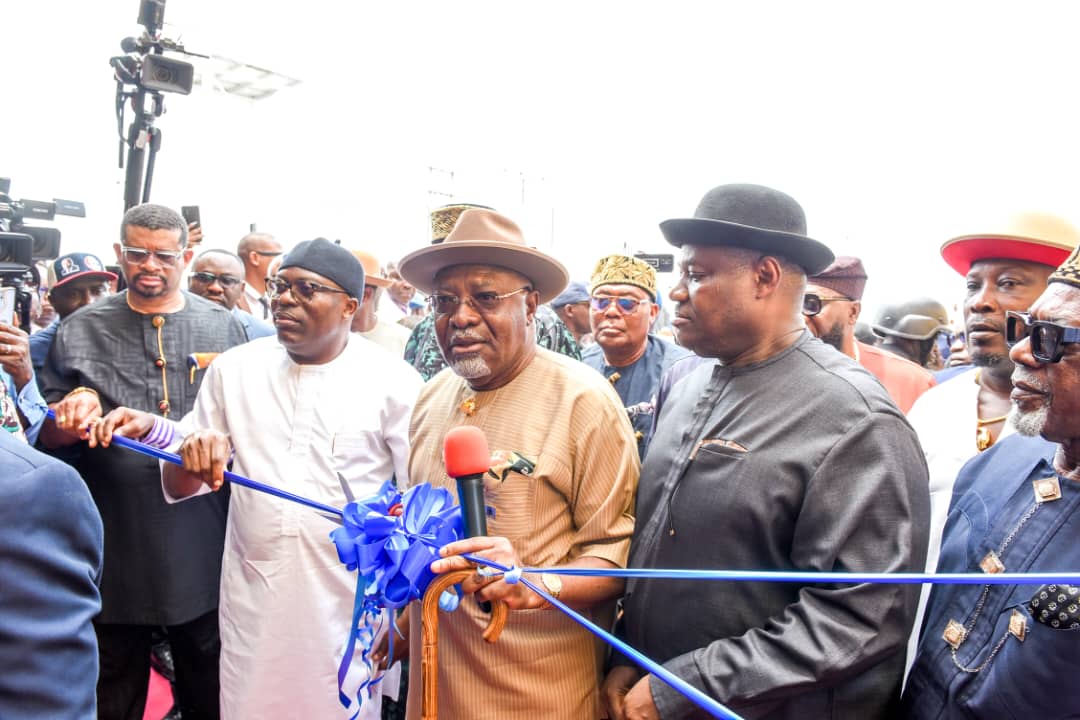Featured
Politics Of Oil, Solid Minerals …A Case Of Numbers Being Strength

The agitation for economic integration, political relevance and environmental protection by individuals and interest groups within the Niger Delta did not start today. Before it snow-balled into full-blown insurgency, well-meaning elite and indeed political and environmental activists had at various times made the case for the respect of the universal law on land ownership and why Nigeria’s Land Use Decree was an enactment of oppression.
Men like Chief (Senator) Melford Okilo, Chief Harold Dappa Biriye and Ken Saro Wiwa among others of blessed memory were civil in their agitations, arguments that drew global support for their noble cause. They insisted that the act of denying land owners proceeds of their inheritance was barbaric, suffocating, marginalizing and indeed oppressing.
Even with facts of history on the issue of derivation, the level of environmental hazards occasioned by oil prospection and production, the pollution of the people’s rivers and swamps, the threat to their major occupations, fishing and farming and above all, the discrimination against the youth of the affected areas, the political class weighed heavily in favour of the majority tribes dismissed the people’s agitation with a wave of the hand.
So frustrating, even the issue of derivation was also politicised. Infact, it was a case of persistent civil protest from one government to another, both civilian and military. At some point under the Buhari military leadership, derivation was as low as 1.5 percent, even with all the environmental degradation suffered by the people.
What was most annoying was that the people of the rural areas, where, oil was daily being drilled, saw electricity light in house-boats and estates of oil companies but used kerosene lamps.
The people saw oil company workers drinking bottled water and threw the wastes into their rivers, which also obstructed fishing, but drank from wells and sometimes stagnant water.
That two-class syndrome also ignited the vulnerability of the girl-child, who became play thing for highly paid oil workers. The freebies such vulnerable girls got from the predatory pastime of the red-eyed workers encouraged easily prostitution and sent many out of schools.
Employment of the males was also a pipe dream. Each oil company involved in the production of oil went to the rural communities with their own work force, and ensured sustenance of the status quo by manipulating posting of youth corps members from their own tribes who are eventually employed, instead of the qualified many within the community and state.
Even the Act providing low level jobs for locals was observed in the breach. With that, the frustrated youth thus became mere tools in the hands of oil workers, to whom they served as pimps, for cutting grass at the estates of the companies, sparingly as night guards and at other times for clearing of gutters.
Interestingly, because operational modus was signed directly with the Federal Government, the oil bearing communities, with all their environmental stakes were insulated from the operations or got peanuts. Like the proverbial man surrounded by water with none to drink, the Niger Delta youth saw unbridled affluence and financial rascality daily flaunted by oil workers to lure their sisters, aunts and even mothers out of matrimony, but could not touch.
That indeed further fuelled the violent agitation. With nothing to rely on for sustenance, since their rivers and seas were covered by oil wastes and sometimes leaks from their pipes with devastating effects on all sea creatures, sea foods like periwinkles, oysters, shrimps and mangrove crabs among others daily exterminated by pollutants and with no hope of change, what was once a civil debate, humble protest, mature agitation and simple appeal by the elite turned to violent threats, militancy and insurgency.
The major demand became Resource Control, and arrangement which would allow the people and governments of oil producing communities and states to control the resources from their God-given land, as obtains everywhere in the free world. The youth wanted true and practical federalism which would force states to pay taxes through the management of their own resources.
But for over 50 years, that simple request remains unanswered. Each time, their protestation turned to a violent kind, given that a hungry man is near-frequently an angry man, the oppressors would demonstrate their heavy handedness through the deployment of arms and ammunition to quell any insurrection while the central issue remained unsolved.
In all these years, the argument put forward by the political elite of the majority North and their South Western collaborators has been that oil is a gift from God and so belongs to all, therefore, primary owners of the land, being Nigerians, cannot lay claim of singular ownership to such resources. According to them, since the treasure remained buried beneath the land, within Nigerian geographical space, it belongs to all Nigerians, and so must be centrally manage, as if the Niger Delta became Nigeria by choice.
With that conclusion, proceeds from oil go faraway Abuja to sustain even states that contribute little or nothing, apart from being lucky to be under the protection of the majority.
That is also why the Petroleum Industry Bill (PIB) has not been passed for nearly six years. Part of the bill seeks to make paltry allowance for oil bearing communities, not just to give them a sense of belonging but also instill in them the need to protect oil company assets located in their arears, since they are direct beneficiaries.
That too appears to the strong majority opposition too much of a sacrifice, since oil is simply a gift from God. But to whom? The same God that gave the North more fertile land for agricultural and livestock activities and rivers and swamps to Rivers, Bayelsa, Delta, Akwa Ibom, Cross River, Delta, Edo, among others for fishing? With such rivers, seas and swamps polluted by production of a commodity that now belongs to all, would the North also willingly share proceeds of their agricultural earnings?
Each time these questions are raised, the answer has remained the same. Oil, being buried beneath the land within Nigeria’s territory, remains a gift from God. But in their comfort zone, they forget that those who make peaceful change impossible make violent change inevitable, as the sages say.
Could that have accounted for the large scale insurgency under the Yar’Adua Presidency and subsequent pronouncement of amnesty? Unfortunately, all other projects that went with the amnesty, especially the East West Road still remain uncompleted. Still too much infrastructural deficit. Still too much discrimination against qualified manpower of Niger Delta origin.
Bottomline, Niger Deltans cannot claim benefits from their own lands, because everything sourced therefrom is a gift from God, and belongs to all.
That is why it came to me as a rude shock last week, to read that the Adamawa State Government, in Northern Nigeria is to start exporting solid minerals including uranium, gold, lead, diamond and platinum, according to that state’s Commissioner for Solid Minerals, Shanti Shashi.
Infact, Commissioner Shashi said BTP, a Swiss company has signed a $56bn contract for solid minerals exploration in a very short while.
When did gold, lead, diamond, platinum and uranium become cash crops? What different law excludes these products, buried beneath the land as Gift from God? Or is it simply a green light for resource management and control?
It is most unlikely, because even as recent as last week, President Muhammadu Buhari alluded to the fact that with all the talk about diversification of the economy, oil production still remains the mainstay of the Nigerian economy, and so would do everything humanly possible to improve production and by extension, improved earnings.
My Agony is that it is very likely that the policy of resource control would come into effect, now through the back door, and later officially only when oil in the Niger Delta dries up completely. That will be when, Borno State begins oil production in large quantities.
Here, perhaps is a window for state governments in oil bearing Niger Delta to go into partnerships with willing foreign investors to start oil prospection and production before oil dries up.
Let’s not dismiss this merely as view thought out in recession, with a near empty stomach. It is a window shut for over 50 years of oil exploration.
Soye Wilson Jamabo
Featured
We’ll Comply With Supreme Court Judgement, Fubara Assures …As CJ Inaugurates Judges’ Quarters

Rivers State Governor, Sir Siminalayi Fubara, has assured that his administration will implement, to its fullest, the recent judgment of the Supreme Court of Nigeria on the political crisis in the State.
The Governor maintained that what is important, in all of the happenings that had been witnessed, has been the protection of the interest of Rivers State because it must be above whatever personal interest that anybody could hold and canvass.
Governor Fubara gave the assurance during the inauguration of the new Judges’ Quarters, a housing facility completed by his administration for Judges indigenous to Rivers State by birth or marriage, at Old GRA, in Port Harcourt City Local Government Area, yesterday.
The Governor explained: “It has not been an easy 16 months, but what is important is the interest of our State, which must be above our personal interest. I want to say it here, very loud and clear to everyone, the Supreme Court has given a judgment, my administration is going to implement the judgment to its fullest. The reason is clear: It is not about me, it is about the good of this State.”
Governor Fubara alluded to the quantum of loss, in terms of money expended, in prosecuting the political crisis, on both sides, which has gone to waste, regrettably.
Such financial resources and other efforts, he said, would be more profitable, if they were synergised, and channeled to courses that promoted the genuine well-being and good of the State, adding that something more assuring would have been showcased.
Governor Fubara stated: “Thank God where we are today, I can assure you publicly that, any day, any time, I have not gone back on that my statement: that nothing (no price) is too big to pay for peace in this State, because at the end of the day, it is about our people. It is not about me, I will leave office but the good work that I have done will speak for me and will defend my generation.”
Commenting on the project, Governor Fubara emphasised that it further shows that his administration takes the issue of welfare, particularly of judicial officers, seriously, explaining that his administration inherited the project and with reports from the Ministry of Justice and some concerns from the Judiciary, it became imperative to continue with it.
He said, “We give glory to God that today, we have completed this project, and we are willing and ready to hand it over to the lucky judges who are going to live here so that they can perform their duties effectively.”
Governor Fubara pointed to the need for proper maintenance of the housing facility and the entire premises so that it can offer required satisfaction, maximally, and assured the Executive’s readiness to provide support in that regard.
Performing the inauguration, Chief Judge of Rivers State, Justice Simeon Amadi, recalled how he laid the foundation stone of the project, which was initiated by the immediate past administration on May 22, 2023, and thanked Governor Fubara for continuing and completing the project, which now represents another milestone and great accomplishment for the Rivers State Judiciary.
He added, “We are pleased with this landmark achievement, which represents the continuation of the policy of providing befitting residential accommodation for judges of Rivers State on owner-occupier basis or monetary ground in lieu there-off. This is backed by the Rivers State Housing Scheme for Judicial Officers Law No. 10 of 2021 passed by the Rivers State House of Assembly, and signed into law by the immediate past Governor of Rivers State.
“The Rivers State Government, in the past years, has been in the fore-front in ensuring that judges are quartered while in service, and in recent years, has gone further to allocate official quarters to judges on the basis of owner-occupier or monetary ground of a fixed sum in lieu there-off.
“The policy of providing official accommodation for judges on owner-occupier basis or monetary ground in lieu there-off has reduced greatly the pressure on judicial officers who hitherto struggle to build retirement home while in service with limited resources. Such pressure and desire to own retirement home in time past was a major concern and have its own impact on job performance”, he added.
In her address, the Solicitor-General and Permanent Secretary, Rivers State Ministry of Justice, Mrs Ibiwari Clapton-Ogolo, explained that the Rivers State Housing Scheme for Judicial Officers, Law No. 10 of 2021 established a housing scheme for judicial officers who must be indigenes of Rivers State either by birth or marriage.
Mrs Clapton-Ogolo said: “The scheme provides for ownership of a decent accommodation in the state by every judicial officer who is an indigene of Rivers State or married to an indigene of Rivers State or monetization of the accommodation, subject to the approval of the government.
“In accordance with the above law, today, the Honourable Chief Judge of Rivers State will commission seven duplexes of five bedrooms, which are exquisitely furnished. Our judges deserve nothing less. I pray that these duplexes will not just be a living houses for our judges, but homes where our judges will find peace and rest as they discharge their duties, as judges, to God and to men,” she added.
Featured
Fubara Assures Residents Of Adequate Response To Fire Outbreaks In PH …Commissions Rebranded Borokiri Fire Service Station, Vehicles

Rivers State Governor, Sir Siminalayi Fubara, has said that the Borokiri Fire Service Sub-Station in the Old Port Harcourt Township will serve as a local-level fire disaster management resource centre to provide quick response to emergencies and ensure protection of lives, property, and the environment from fire disasters.
Governor Fubara gave the assurance while inaugurating the Rivers State Fire Service, Borokiri Sub-Station in the Old Port Harcourt Township in Port Harcourt City Local Government Area, last Thursday.
The Governor stated that fire service stations are essential components of critical services that must be provided by any government for its people as proof of commitment to their safety.
Governor Fubara maintained that the inauguaration of the station, therefore, aligns with what government must do without fun-fare because discharging statutory responsibility to the citizenry is not anything to advertise.
He said: “The purpose of government is to provide services. The purpose of government is to protect lives and property. So, while we are doing those things that we are elected for, and we now start showcasing it, sometimes, it doesn’t make any sense. But, that is what the business has really turned into, which is, whatever you are doing now, you have to showcase so that they will know that you are really working.”
Governor Fubara also said: “Some persons will commission borehole, some will commission all sorts of things, and they do adverts for it. But for us, we have chosen to showcase to the world vital and most needed items of service as a government. What we are showcasing here today is one of the essentials of governance. Fire service station is a very important component in every system.”
Governor Fubara explained that some days ago, he unveiled the modernised and remodelled Headquarters of the Rivers State Fire Service to signal the restorable of stable and regular response to fire disasters across the State.
He said, three days after, he has returned to show to the world a similar word of revitalisation that has been achieved on the Borokiri Sub-Station that will end years of absence of such services available to the residents in that part of the township.
Governor Fubara stated: “Borokiri is a section of the Town, one of the densely populated areas of Port Harcourt City. The essence of rehabilitating this Fire Service Station is to cater to the huge population that is living here.
“We had cases of fire outbreak, from time to time, and we have never adequately responded to them. I strongly believe that after this minute, whatever that would happen, provided it is within the power and jurisdiction of this station, it would be combated adequately.”
Governor Fubara expressed delight over what has been achieved and made available to the people, who are also grateful, and appreciated it with gratitude, exemplified with the joy and excitement on their faces, stressing that this is the reason why his administration will remain resolute, and continue to work to better the lives of all residents in the State.
Performing the inauguaration, former Minister of Transport, Dr Abiye Sekibo, said the project reflects purposeful leadership that has prioritised the wellbeing of the people because they will get assistance to tackling fire incidences when it occurs.
He pointed to the massive rehabilitation work that has been achieved on the long abandoned fire station, which now offers the assurance of more jobs created to engage willing youths to work, adding: “Your Excellency, I was Secretary to the Government in this State, this fire station existed then. I must confess that what I am seeing today is a state-of-the-art fire station. Thank you for your care and for your love.
“This is also an opportunity to expand the possibility of work for our people. When there are instruments to work with, you need people to use them and drive these vehicles to fight the fires. I am sure that our Governor will use this, as a point of reference, to ensure that we have employment within the system that gives our youths something to do.”
Dr Sekibo also said that Governor Fubara carries the collective hope and vision of all Rivers people who are resolute and determined to continue to support him, saying that this is the more reason why President Bola Tinubu should also support Governor Fubara who, as an ally, has continued to work for the success of his administration.
Dr Sekibo also said that, for the first time in 24 years, the Ijaw Nation, which is domiciled in more than 8 local governments of Rivers State, now have the opportunity of governing the State and enjoys massive support of the people.
So far, he noted, the leadership provided by Governor Fubara has been tested in the bold decisions that he has taken to steer the progress of Rivers people, emphasising: “The work our Governor has done in this State in the short time he has been Governor, shows that he prioritizes our interest, and indeed, cares for the unity of this nation.
“This Governor, at a time when our funds are seized, he made sure that there was no problem in this State. He made sure that essential services continued, he didn’t try to create problems for the Federal Government.”
He pointed to how Rivers people have always supported the government at the centre and have not ceased, adding that under the leadership of Governor Fubara, Rivers people are still and will continue to support the President Bola Tinubu-led Federal Government.
He explained: “Mr President, the dear President of Nigeria, our own President Bola Ahmed Tinubu, we, the Rivers people, have always supported the government at the centre. We have always worked with the government at the centre. This Governor, Sir Siminalayi Fubara, has convinced Rivers people that they must stand with their President, and so, we stand with you.
“There might be persons telling you stories, especially when they see people like me, who was a core Atiku man. They will say, don’t you see, it is Atiku people that are with the Governor. There are also Atiku people that are with them there in Abuja. But, the Governor has convinced us that the place to be is to be with our President. So, Mr President, we stand with you. We stand with you because that is the right thing to do. The election delivered you as our President, and so, we stand with you. The election also delivered our Governor, our son, and we stand with him.”
Dr Sekibo advised Rivers people, who felt demoralised by the Supreme Court judgment, to brace up and give unalloyed support to Governor Fubara, who has assured of obeying the ruling to the latter.
In his speech, Rivers State Commissioner for Special Duties, Dr Samuel Anya, said the Rivers State Fire Service, Borokiri Sub-Station was abandoned for years, but quickly added that Governor Fubara has rehabilitated the structures, provided necessary materials, equipment and fire trucks to serve the people better, and guarantee their safety.
Featured
We’ve Strengthened Rivers Fire Fighting Capability – Fubara

Rivers State Governor, Sir Siminalayi Fubara, has said that the modernised fire-fighting units with new buildings, necessary machinery, materials and equipment will strengthen the emergency response capability of personnel to fire incidences in the State.
The Governor pointed to how the provision will drastically reduce, if not eliminate, the vulnerability of Rivers population to fire disasters, as according to him, there will be timely assistance to victims to reduce damage and bolster conditions for sustainable development.
Governor Fubara, who gave the assurance while inaugurating the Rivers State Fire Service Headquarters Station, located by Isaac Boro Park Flyover, in Port Harcourt City Local Government Area, yesterday, said the gesture serves as a consolidation of the promise made, in line with his vision of governance: to provide quality service to the good people of Rivers State.
He explained that some years ago, the State was at the mercy of the multi-nationals that had functional fire trucks to respond to most fire incidences, and pointed to setbacks that greeted some emergencies, adding that the records of losses to fire incidences were colossal.
Governor Fubara said: “We lost the Mile One Market because we couldn’t respond adequately. We lost, even what we call, the Fruit Garden Market because we could not respond. Are we talking about houses, lives that have been lost in this State because of inadequate fire service?”
The Governor insisted that the purpose of governance is to provide such quality social services, protect lives and property, and make living comfortable for the people, asserting that his administration has not failed in those regards, and has continued to intensify the provision of services that have made Rivers people happy.
He said, “And, what we are doing today is to tell the good people of Rivers State, and to showcase to the world, that there is governance in this State. Not governance for the sake of governance, but governance that is purpose-driven, governance that is interested in projects that will change the lives of our people.
“Some days ago, a tanker fell along the Woji-Elelenwo Road. If it were before, lives would have been lost. But immediately, the fire service, not the multi-nationals, it was the Rivers State Fire Service that responded and arrested the situation. What else are we talking about?”
Governor Fubara said Rivers people are very happy with the consistent delivery of infrastructure projects that address the critical problems experienced by the people in the larger society, emphasising that he believed strongly that even if some persons are indulged in clandestine activities, and determined to discredit his administration, Rivers people are happy, indisputably so.
He explained, “We are not interested whether those people who are commissioned to undermine us are unhappy, that is not our business. Our business is about Rivers State and Rivers people. So, like the Commissioner said, we did not just do this for the sake of glamour. You come here, you see a painted house, every facility that is required in a well-built fire fighting facility, is all in this place.”
Governor Fubara said further: “You can image a government that has a fire service and the firemen are not working. It is only at the end of the month you pay them their salaries. You can see that they were not happy and unproductive. But today, they are happy because they have a big responsibility now ahead of them: to ensure that lives and property of the good people of Rivers State are adequately protected. So, I want to thank you for this particular spirit at this moment.”
Governor Fubara commended the Commissioner for Special Duties, Dr Sam Anya, for driving the process to conclusion, and the contractor for delivering the project on schedule, and assured that his administration will continue to ensure the protection of lives and property while defending the Constitution of the Federal Republic of Nigeria.
Governor Fubara also told Rivers people to expect the provision of more basic amenities, unbiasedly, and advised those in charge of the firefighting equipment to safeguard and protect them so that they can serve their purpose maximally.
Providing the project description, Rivers State Commissioner for Special Duties, Dr Samuel Anya, explained that since the first fire service station was built in the 1960s, this was the first time the facility is being remodeled and upgraded, emphasising that certain features were introduced and added to make the station comparable to fire service stations nationally.
He stated: “We have gym, sick-bay, offices and state-of-the-art equipment that we will use to combat fire. Your Excellency, we have also, new fire trucks that you have acquired. Before now, we did not have any truck, and when incidents happen, we have to call the Federal Fire Service or call Agip or Shell Fire Service. But thank God that His Excellency, in his wisdom, has given us state-of-the-art facility, and we don’t need to call any other person again.”
In his address, Head of Local Government Administration, Port Harcourt City Local Government Area, Mr. Clifford Paul, said Governor Fubara has turned the once dilapidated fire service station and its equipment into a modern masterpiece, which represents a significant milestone in the collective commitment towards tackling fire incidences.
Mr Paul stated that it will certainly enhance the capacity of personnel and reinforce their preparedness to respond to emergencies in the event of fire outbreaks.
-

 Niger Delta3 days ago
Niger Delta3 days agoNACA Debunks Fake HIV Drug Pricing News
-
Business3 days ago
MDAs, Presidency Spend N1.9bn On Trips, Trainings In France
-
News3 days ago
EFCC Exposes 58 Ponzi Schemes Targeting Nigerians
-
Politics3 days ago
You’re Democratic Accountability Agents, Diri Tells Journalists
-
Niger Delta3 days ago
Diri Rejects S’South PDP Congress … Calls For Unity
-
Business3 days ago
Coy Launches $2m Fund For Nigerian Entrepreneurs
-
Sports3 days ago
RFF Announces 15 Players For African Games
-
News3 days ago
We’re Donating Helicopter To NAF To Enhance Nigeria’s Security, Economic Rebound – Fubara

